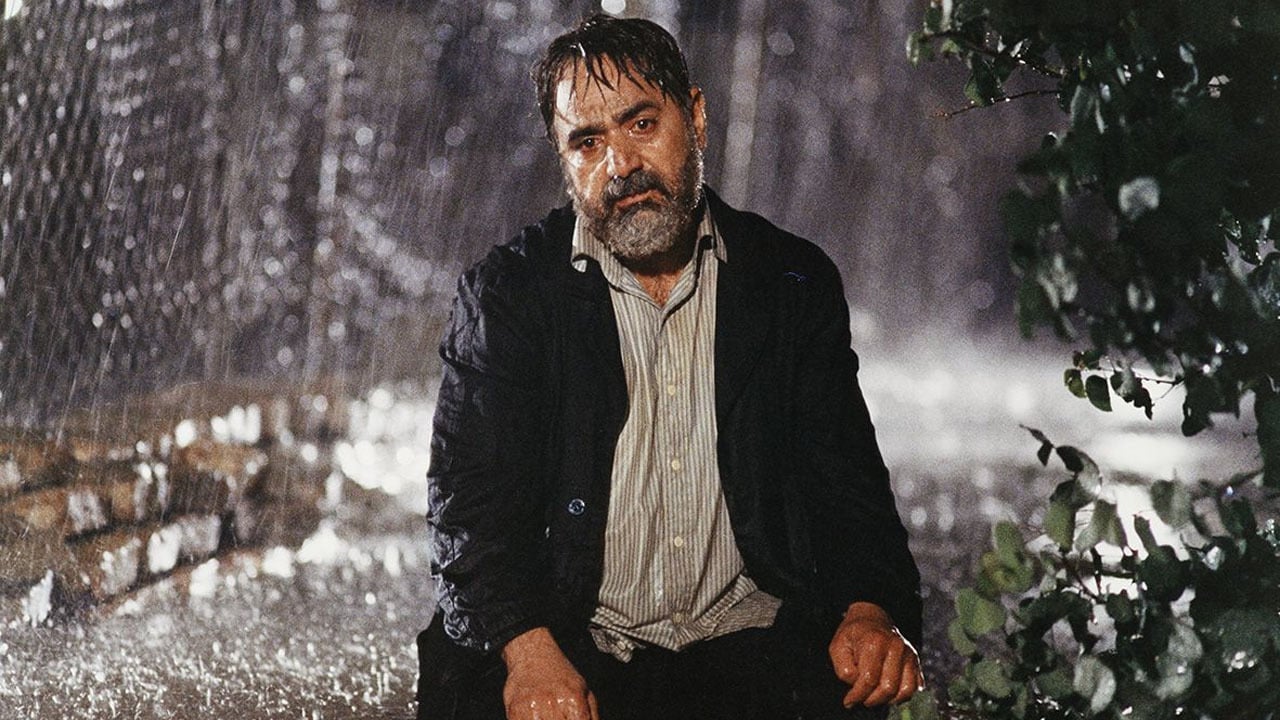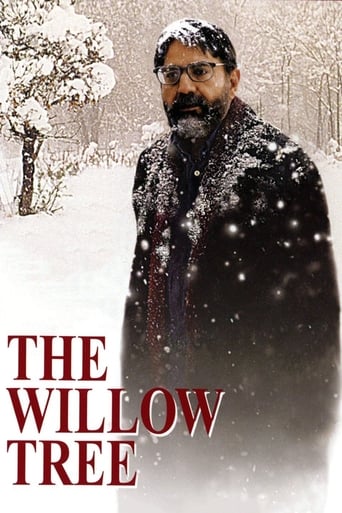

Too many fans seem to be blown away
... View MoreExcellent film with a gripping story!
... View MoreA terrific literary drama and character piece that shows how the process of creating art can be seen differently by those doing it and those looking at it from the outside.
... View MoreIt's a good bad... and worth a popcorn matinée. While it's easy to lament what could have been...
... View MoreI found "Beed-e majnoon", the younger, but in form and content more adult and restrained sibling of the famous "Rang-e khoda", very good, despite some minor flaws. But by chance, I did not enjoy it as much as I might have, because its heart, so to say, was revealed to me years ago through a chapter in "Pilgrim at Tinker Creek", a small book of essays by Annie Dillard. I would like to embrace this opportunity and recommend it to any reader of this who is not yet familiar with it and would feel concerned. A couple of pages where the author depicts the inner world of the blind who have regained their sight touched me deeply and for good. Thus I can't but look upon Majidi's film rather as an illustration to Dillard's essay than as an independent work of art. This is of course a subjective attitude not fair to the movie, since it offers much more than what's inherent in "Pilgrim". Apart from its obvious religious value which is something I can hardly judge (who else than "The Film Sufi" should know better ?), "Beed-e majnoon" is rewarding and inspiring from both psychological a philosophical point of view, let alone its visual beauty. Although New Yorker Video did their best to conceal it in their inferior non-anamorphic transfer, it still shines - as early as in the quasi-mirroring calligraphy of the opening titles. The image of our hero staring at his mirror self emerging in the glass door ; another one letting him slowly fade in the rearview mirror of his wife's car ; the whole sequence at the airport - not one of the following scenes, for me, could match this one ....Speaking about blindness as a theme for filmmakers, there's one more work to be recommended : Werner Herzog's early documentary about deaf and blind people in Bavaria "Land des Schweigens und der Dunkelheit". In short : a harrowing and enlightening experience !
... View MoreYou will find some similarities in majid majidi's each films that are man is attached with nature sometimes its rain sometimes ostrich and sparrows and other times its tress.This was one of Iranian and majidi's best film when the teacher is blind He loves inner beauty and feel nature and when He gets his eyes vision which is not transitory.He first fall in love with a girl who has a outer beauty and tires to leave her mom and wife back who cared his 38 years life.Then he finds some distress like poverty when he comes by a shop and watch a poor baby then he see a guy who is spending his life on risk by doing pick pocket.its better to not to have vision when world has such distress and misfortunewe'll have to thank him for what he as given us because when he doesn't, there are some reasons behind it.
... View MoreSometimes God works in mysterious ways, and us mortal man have absolutely no idea what to make of it, opting for the most parts to blame the big guy when things don't go our way, only to find out that the fault lies in ourselves. No, I'm not suddenly pious and wanting to spread the word, but Majid Majidi's The Willow Tree evoked such a feeling and reminder to myself, that it's always so easy to blame "somebody else", even though that someone could be the guy up there.I haven't seen much of Majid Majidi's works, but from what I have in just Children of Heaven, and now The Willow Tree, I can't wait to watch a whole lot more. The stories might seem simple - few key characters (lovable too I might add), gorgeously shot, and you might think you have the plot all wrapped up, there's always this beauty in the simplicity of it all, and its powerful underlying message ever so subtle, in no way sledge-hammering itself on you at all. Somehow I feel that there's so much enveloping the movie, that I'm simply amazed at how they are all packaged together in a nicely paced movie, without the need to be butt- numbing.Youssef (Parviz Parastui) is a blind university professor, who spends his time playing with his young daughter, and has his wife assist him with his work. From the onset, it's a happy little family, except that Youssef has a dream, that he could one day regain his sight and see again. Sometimes I wonder if able folks like us take things for granted naturally, and if only we lose it, do we start appreciating and missing something at all. Majid has for the first minute placed us in Youssef's shoes, and listening to his innermost thoughts and dreams, one ponders.While faith is important, and I would think if I were in Youssef's shoes, I would also choose to turn to religion as a pillar of strength, there's this little warning of being careful with what you wish for, as sometimes, what you think is best for yourself, isn't true at all. If you made promises to the big man, make sure you can fulfill those promises, and not let it ring empty. We follow Youssef's journey and understand his fears, frustrations and hopes, coupled with his fall from grace and redemption. The Willow Tree leaves things wide open, but you can only hope for the best. I like the way how Youssef is forced to choose, and I actually felt pity for the guy as he loses himself, like the saying goes, because of his straying eye. I wonder too, if our gift of sight somehow will sometimes be the attributing factor, or seed the beginnings of mistrust, just because our eye sees something that our minds interpret differently, or fantasize.And the movie couldn't work without the excellent soundtrack, or the commanding performance by the lead Parviz Parastui. He has one one hand made Youssef a likable fellow, yet managed in the same movie to make us despise his actions, with a tinge of pity, and at times, just wanting to slap him out of his arrogance. It's been a long while since I actually cared for a character, and want to reach out to him - as the bystanders usually have the better view of any situation - and to direct him, just as how you would a blind person, to avoid the pitfalls that seem set to dawn on him.At another level, The Willow Tree has indeed opened my eyes to more of Iran, instead of those ra-ra sanctions filled news bulletins demonizing the country as a whole. I thought that through film, I see a little more of a country caught on celluloid, depicting the same hopes, dreams, and even challenges that folks in the country grapple with too. And with such intelligent stories from their filmmakers, you wonder about their rich culture, and also realize that you don't need big sets and big moments to create an impact - the little things in life that you can put into stories to tell, work just as majestically.
... View MoreI saw this at the 2005 TIFF to a packed audience.This was an eye-opening movie in a couple ways.Not only is this drama about a blind Iranian man who unexpectedly comes upon sight during a routine eye operation in Paris, but it opened my eyes to the value of sight in life.The main character in this movie has been living life without sight for 38 years, so much so that we see the habits, the challenges, the braille reading, and the support his friends and family give him and which he is subtly dependent upon. Yet when this miraculous chance to see gives him, shall we say, a second chance, what does he do with it? In fact what would anyone do with it? What I liked most about this was that the challenge posed to the lead character and the choices he made were so very real with the challenges and dilemma of his choices and frustration clear. This made me consider the choices *I* have been making in life. If I were given a second chance with anything, what would *I* do with it? This was a thought-provoking movie that took me into a world I have never experienced. And while I have seen movies about blind people, this movie really seemed to capture the view of life from this particular blind man: his challenges; his decisions; and most importantly, his emotional state.This is a smart and very real movie that was moving, thought-provoking. Visually speaking, the weaving of light with dark scenes allows the story to further come to life giving a final illumination on a story that shares, sympathizes and delivers.This is a well-done piece of work! Congratulations!
... View More